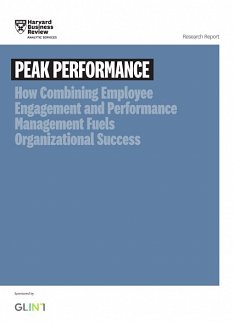Archive of: IT management
Blog Post

It is becoming increasingly common to hear CIOs say that any new applications their enterprises adopt should be cloud-based, with SaaS as the first option (will an existing service fill your needs?), and with custom-developed applications written to be cloud native. But what about the many legacy systems already running in your organization? After you've done an initial triage (see my previous post), large enterprises are left with significant portfolios of important and value-adding systems. According to a Computerworld interview with Stephen Orban, head of enterprise strategy at Amazon Web Services (AWS), "now that major enterprises have gotten their feet wet with smaller cloud projects, they're beginning to focus on migrating large, critical legacy workloads."
So here's my take on how to approach this.
Blog Post

Organizations often fall into new technologies haphazardly. Different groups discover new ways of working that better meet their needs, and they go for it. Eventually, CIOs find themselves with something of a jumble to manage.
Cloud is a particularly extreme example of this, as cloud services can be quite easy to sign onto. There are certainly categories of cloud services that CIOs don't need to control -- things that are opportunistic, department-specific and that don't need to link into core systems or data. As long as the acquiring business people understand and abide by some basic guidelines (mainly having to do with security), let a thousand flowers bloom.
However, when an organization starts to look to cloud for its enterprise IT needs, that's a very different story.
Blog Post

Software-defined everything is a hot topic these days -- first and foremost because the pace of change in business is accelerating, and this is changing expectations for how IT operates. I've been hosting a lot of CIO roundtables and dinners on this topic, and I hear a growing consensus that if IT organizations don't figure out how to compete with nimble cloud providers to provide IT services on-demand, they will be outsourced. "IT has to virtualize and automate or die," one IT leader said.
While many CIOs see a "service broker" role in their future, a VP of IT from a global technology manufacturer actually predicts the dissolution of IT altogether. He believes that all of the functions that are part of IT today will be pushed out into engineering, or product development, and all that will remain in IT is governance. A year ago, that statement would have been immediately shot down. Not today ...
Blog Post
Influence: the act or power of producing an effect without apparent exertion of force or direct exercise of command. For most CIOs and their teams, this is the only way to get things done.
Here's an excerpt from my Persuasive Communication and Influence workshop.
Blog Post
CIOs are facing a dilemma. On the one hand, they must innovate with technology to help their businesses grow again as we come out of the recession. On the other, because the recovery of 2010 will be slow and drawn out, they must continue to cut costs and focus on operational efficiency. In fact, 57% of executives surveyed by Accenture in November 2009 said that innovation and cost reduction are equally important to their company's ability to achieve future growth.
Blog Post

Steve Bandrowczak, former CIO at DHL, Lenovo and, most recently, Nortel, knows what IT leaders can learn from sales and vice versa because he has recently made the transition into a sales leadership role himself. As vice president of global sales at Avaya after that company's acquisition of Nortel, Steve leads sales, marketing, channel strategy, services and service strategy for Avaya's data business. I spoke with him recently. This is the third in a series.
Blog Post

Year Up offers urban young adults a chance at a better life. It also offers a model of training that educators, managers and HR professionals should pay attention to.
I recently had the pleasure of visiting the birthplace of Year Up. Like many successful startups, the original space in Boston's financial district is funky, distinctive and graced with personal touches. Creaky wood floors are warmed by oriental rugs; high ceilings with exposed pipes provide architectural interest; colorful handprints of the members of the first graduating class claim the wall of the common area, where visitors and students can relax on oversize leather sofas and chairs.
Blog Post

This is Part Two of my interview with Todd Pierce, CIO of Genentech. In Part One, we spoke about effective communication.
Blog Post
The holy grail of post-recession business will be profitable growth. The very idea of profitable growth is full of contradiction, as growth generally requires investment. With revenues unlikely to outpace that investment in what economists are predicting will be an anemic, drawn-out recovery, companies that have already been doing a lot of cost cutting will have to become even more efficient. This will put unusual pressure on executives to place the right bets when it comes to investments (based on strong customer insight and market knowledge). And it will require excellent management abilities and flexible, responsive, lower-cost IT.
Blog Post
Great communicators focus on the perspectives, priorities and frames of reference of the people they seek to communicate with. At Genentech, that means science. Todd Pierce, SVP and CIO at Genentech, views effective communication as the “circulatory system" of business. Everything he does takes that into account.
Being in the drug discovery/drug development business, Genentech runs on quickly gathering large volumes of information and analyzing it effectively. With 30-40 clinical trials going on at any given time, that's a lot of information.




